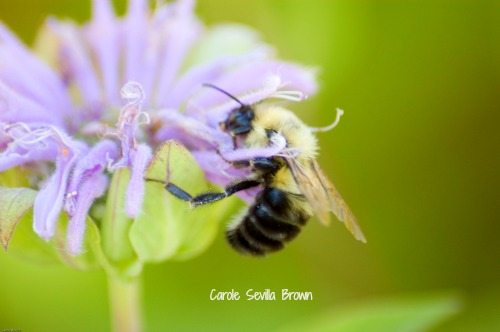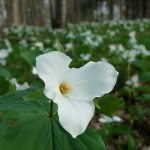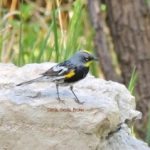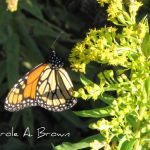We hear so much about how the bees are in trouble, but most people don’t realize that most of this discussion centers around honeybees, which are non-native to this country, but have been imported heavily for use in agricultural pollination, and are now seeing great declines dues to colony collapse disorder.
We need to wake up to the fact that many of our native bees are also in great trouble due to habitat loss, pesticides, and other actions by humans.
The truth is, our wildlife gardens are one of the last lines of defense to protect these native pollinators. We can create habitat and provide them with everything they need. Doing so will ensure that all of our beautiful native plants receive the pollination services they need, and even that we have delicious tomatoes and other vegetables growing in our gardens.
There are over 4,000 species of bees in North America, and they play a critical role in pollinating crops and wild plants. Some of the most common species of bees in North America include:
Honeybees: Honeybees are the most well-known species of bees, and they are often kept by beekeepers for honey production.
Bumblebees: Bumblebees are large, fuzzy bees that are important pollinators of crops and wildflowers.
Solitary bees: Solitary bees include many different species that do not live in colonies and do not produce honey. Instead, they nest in individual burrows in the ground or in hollow stems.
Mason bees: Mason bees are solitary bees that are known for their ability to pollinate fruit trees and other crops.
Leafcutter bees: Leafcutter bees are solitary bees that cut pieces of leaves to line their nests.
The health of bee populations in North America has declined in recent years due to a number of factors, including habitat loss, pesticide use, disease, and climate change. The decline of bee populations is a cause for concern because bees play a crucial role in maintaining the health of ecosystems and producing the food we eat.
In response to the decline in bee populations, many conservation organizations, government agencies, and individuals have taken action to support bee health, including planting native wildflowers, reducing pesticide use, and promoting bee-friendly practices in agriculture. The continued efforts to support bee health and biodiversity will help ensure the survival of these important species and the health of our environment.
More From Ecosystem Gardening:
Submit your review | |








